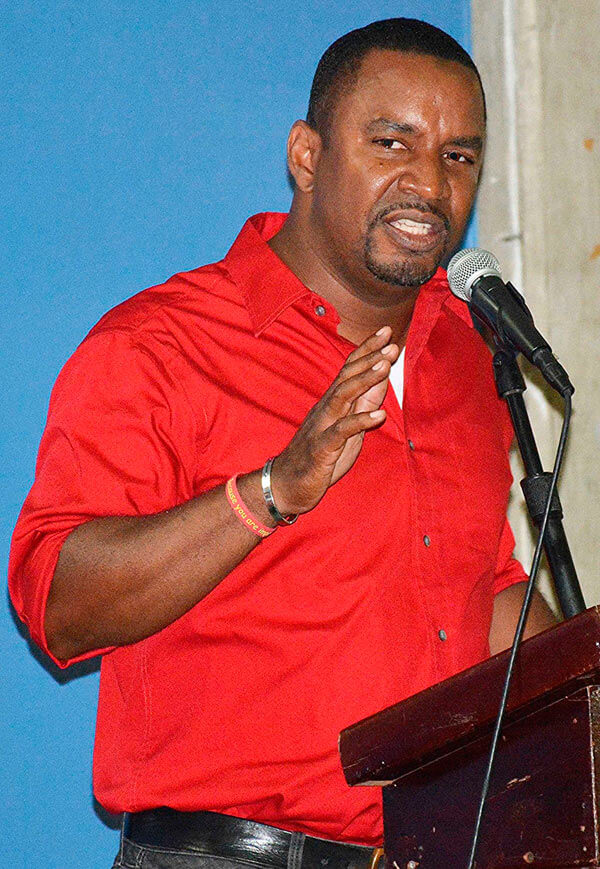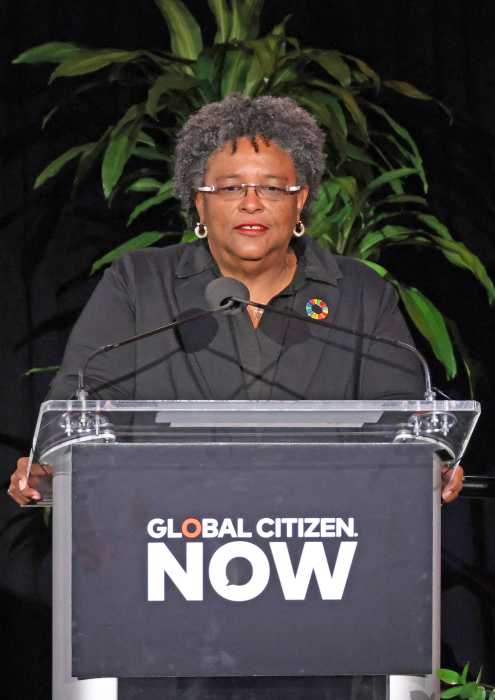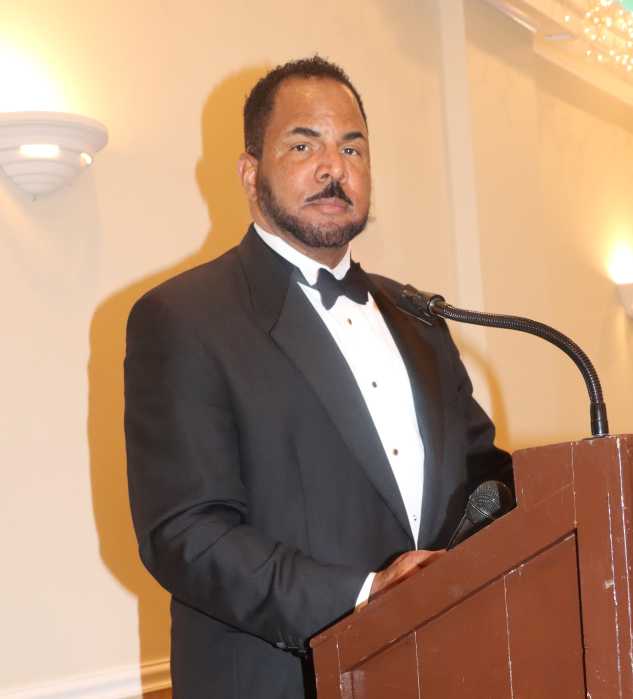Suppressing and removing an upsurge in crime may prove a very challenging prospect for Barbados as the authority’s announced moves may put it on collision course with the constitution and human rights of citizens.
The government wants to lock up accused gang members without bail then jail them for more than two decades once found guilty, but the Opposition has said the proposals make no sense.
Responding to an upsurge in gun-related crimes, much of which is attributed to gang disputes, Attorney General Adriel Brathwaite last week spoke of coming anti-gun and anti-gang legislation aimed at giving judges more power.
“I propose that anybody, male or female, who is found guilty of being a gang member should receive no less than 20 years in prison. Leaders of gangs will receive a maximum of 25 years in prison,” the attorney general said.
Addressing a complaint across the island of seeing accused persons back on the streets because they got bailed almost immediately after their first appearance in court, Brathwaite said, “I hear too often of alleged gang leaders living among us, seemingly without fear of prosecution. I also propose to widen the police’s powers to stop and search under the Police Act, and an amendment to the Bail Act to prevent bail being granted for a period of 18 months where the offences charged include the use of a firearm.”
Following years of denial, authorities are now saying that gangs have mushroomed across the island, with the Commissioner of Police, Tyrone Griffith, two months ago identifying the housing community of Black Rock as an area that alone accounts for 16 of these illegal violent groups.
“These persons corrupt many of our young men and women,” Brathwaite said in explaining how older persons recruit youngsters into gangs and, “send them into the society to commit very serious crimes. They are not heroes. They belong behind bars and that is why we want to give specific legislation to deal with them.”
With a 16 to 14 parliamentary seat majority government is expected to succeed in passing this proposed law and amendments to others, which Brathwaite said is no knee-jerk reaction.
But an Opposition Barbados Labour Party Senator and attorney, Wilfred Abrahams, over the weekend dismissed Brathwaite’s intended course of action as constitutionally unworkable.
Contending that that the lock-up without bail and jail proposal, “flies in the face of everything that makes sense,” Abrahams asked, “why would the attorney general, who should know this, come and tout that as an example of what we’re doing to combat crime?”
Attacking government’s stated intention to arrest and detain suspected gang members for up to 18 months without bail, Abrahams said, “bail is a right. You, the accused person, have a right to bail unless certain criteria are fulfilled. So from the time you start by taking it away from a judicial officer . . . it is unconstitutional.”
Abrahams said that such legislation cannot stand up in court and would be struck down as a violation of a constitutional right of an accused person to be regarded as innocent until proven guilty, and therefore entitled to bail while awaiting the court’s decision.
The lawyer also criticized the attorney general’s stated intent to design the law to mandate judges to impose a minimum 20 years imprisonment for gang members as a hard and fast rule.
“It cannot happen. You cannot legislate telling a judge that you must put this sentence on somebody. That is his judicial discretion,” he said.
With elections months away, government might be pandering to the electorate by proposing tough anti-crime laws, but the test is in how workable will be the new legislation.


























